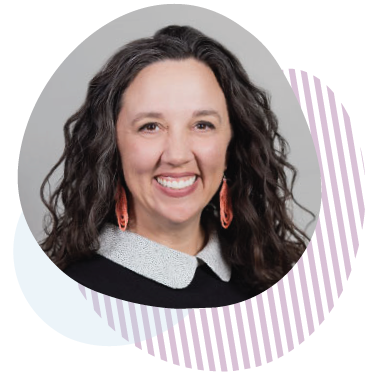Prevention Education Series
The goal of this series is to bridge the gap between prevention education theory with on-the-ground practice.

"Verbing" Abuse Prevention
Professionals in prevention education come from a diverse range of disciplines. From sociology, psychology, and criminology to political science and social work. Research from across these fields is clear. We need comprehensive prevention education to create meaningful culture change in sport. Thanks to data and research in the field of prevention education, we don’t have to guess what works… we know. We have a plethora of data-informed practices to pull from, each proven to reduce risks and rates of violence.
Having said that, it can be difficult for folks outside of the abuse prevention field to apply these practices to our own lives. It’s one thing to read an article about abuse and feel moved to support the value of abuse prevention. It’s another thing entirely to apply the practices of abuse prevention in our own spheres of influence. It’s not enough to agree abuse prevention is important. We have to actively apply the skills. To “verb” abuse prevention if you will.
Verbing abuse prevention means exploring false assumptions we may operate under. That includes the idea that simply surrounding our kids with people we trust is enough to keep them safe. Verbing abuse prevention means examining the stereotypes we may hold about what abuse “looks like” and how survivors “should” react. It means confronting the idea that we would “just know” if someone we trust was abusing kids. For those of us who identify as survivors of abuse, verbing prevention might mean first starting with our own healing before engaging others in this delicate topic.
Some of you are already comfortable talking about these ideas. Others are just getting started. Regardless, our team of subject matter experts is ready to provide the best resources for all our learners. The tools the Center will be sharing in this quarterly series are be data-informed and current. They will be comprehensive and trauma-informed. They will be specific to situations you are facing. And most importantly, they will be useful—best practices, strategies, and reflection questions you can apply to your life every day.
I look forward to verbing the heck out of prevention education with you.

Monica Rivera
VP of Prevention Education at the U.S. Center for SafeSport
Monica has spent the last 17 years in the field of interpersonal violence prevention, much of that time working directly with survivors of abuse. She leads our team of subject matter experts who share a belief in the transformative power of prevention education.
Do you have any questions or ideas? Please reach out to [email protected].
Featured Resource
The prevention tools the Center will be sharing in this quarterly series are data-informed and current.
Visit our Abuse Prevention Resources for quick links and tools to help you recognize, prevent, and respond to abuse or misconduct in sport.

JOIN OUR EMAIL LIST
Stay connected with the latest news, resources, and tools. Enjoy our quarterly e-newsletter, The Gameplan.
